The undead of Rana Plaza
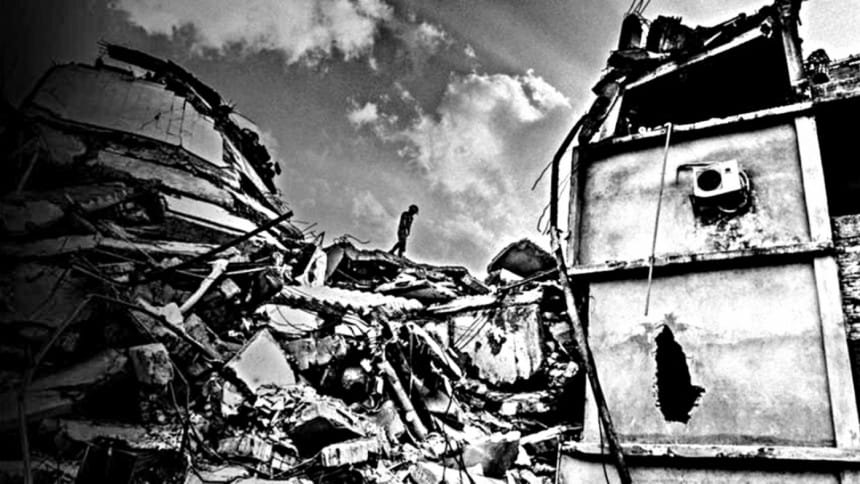
Muhit Faijul is a relatively well-known face in Savar. Talk to youngsters in the region and they will brag about how proud they are to have such a selfless man amidst them. Stories of how this English teacher saved a number of lives during the Rana Plaza collapse five years ago are still discussed during addas in tea stalls.
Meet Muhit in person in one of these stalls and you understand why he is such a popular figure. Clad in a blue t-shirt, with unruly hair and a pair of black sunglasses hung from his collar, he reflects a down-to-earth demeanour and rarely misses a chance to let out a smile.
Hidden behind that grin, however, lies a disturbing secret. Muhit claims that the Rana Plaza episode has rendered him emotionless. He has lost the ability to react appropriately to different situations.
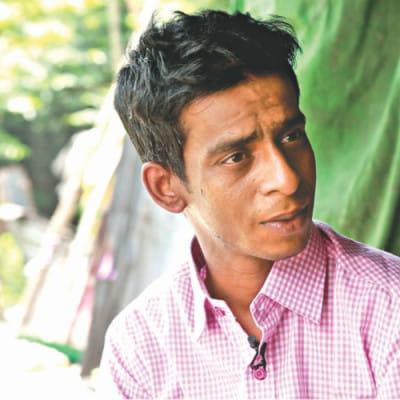
"During the collapse we had to sever different body parts of a number of victims using cleavers used to slaughter animals. In some cases, we also used saws," he says.
"In one such incident, a woman requested me to cut her hand off. To reduce her pain, all I could use was Diclofenac Sodium, a normal pain killer, which wasn't enough to reduce the pain at all. As I got ready to chop her hand off, she put her scarf in her mouth so that she wouldn't scream in pain. At that moment, I couldn't take it and another volunteer had to step in. As I was leaving her, I heard someone shout Allahu Akbar and then I heard her heart-wrenching scream," recalls Muhit.
"I have seen so many rotten dead bodies. I sometimes feel that my emotions have died. I don't feel upset when something tragic happens. I just keep smiling, no matter how intense the situation is," he explains.
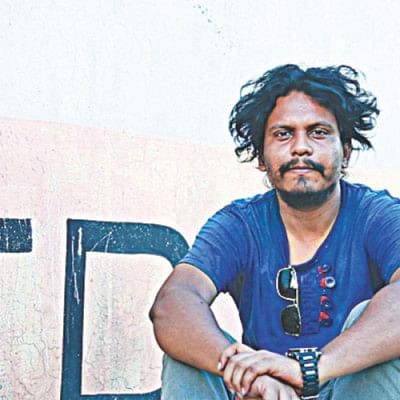
Over the years, Muhit, in an attempt to forget the sufferings, has attended several counselling sessions arranged by various NGOs; however, his disturbing mental condition persists.
Muhit is one of the many Rana Plaza volunteers whose lives have been drastically affected following the collapse. Many of them continue to suffer from post-traumatic stress disorder (PTSD), a mental health condition brought about by traumatic or life-threatening events. Symptoms include flashbacks, nightmares, severe anxiety and obsessive thoughts about the event.
Countless Rana Plaza survivors have also shown symptoms of PTSD. According to a study conducted by the Bangabandhu Sheikh Mujib Medical University (BSMMU) in 2014 on survivors and rescuers of the Rana Plaza collapse, 58 percent of the respondents were suffering from PTSD. Another survey commissioned by ActionAid Bangladesh conducted in 2017 highlighted that as many as 58.4 percent of 1,300 survivors surveyed were still suffering from long-term psychosocial problems, 37.3 percent were more or less stable and only 4.3 percent had recovered fully. No separate survey was undertaken for the rescuers of Rana Plaza. While some received psycho-social counselling from different NGOs, many continue to be haunted by the memories, with little idea on how to move on.
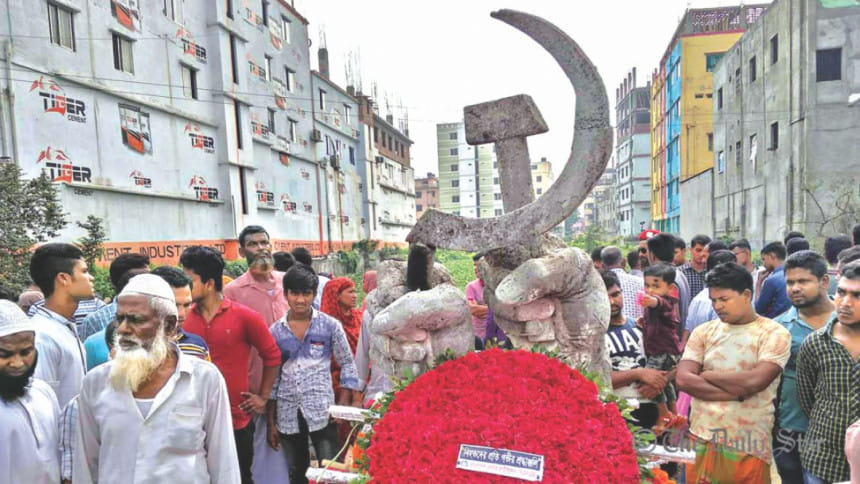
Take Fahim Rahman, a Rover Scout, for instance. He and a group of his friends had entered the debris at a very young age. Their main task was to identify the dead bodies of Rana Plaza victims by detecting the distinguishing marks.
"On the 11th day, we found a dead body which was nearly impossible to identify. We had to find a dom (prosector) ) named Mintu bhai. After seeing the body, he told us that this was not just one body, but two bodies moulded together. After he separated the bodies, we realised that there were bodies of a man and a woman. We found their families and learned that they were in love with each other."
In another instance, an old man came to him to claim the dead body of his son. When Fahim asked for an identifying marker, the father told him that his son had one false tooth. Fahim had to put his hand inside the mouth of the dead body to find the tooth. When he took out his hand from the mouth of the corpse, he found it fully covered with flesh eating maggots.. "There are times when I can still see the maggots crawling on my hand when I close my eyes," says Fahim.
Soon after the incident, Fahim's grandfather passed away at his village. When Fahim went to pay his respects, he didn't seem affected by the death of such a close relative at all. "I was barely upset upon hearing the news," he says. "I realised that my mental condition is abnormal and I went to a number of psychologists for help. The treatments gave me temporary relief, but could not cure me completely," he adds.
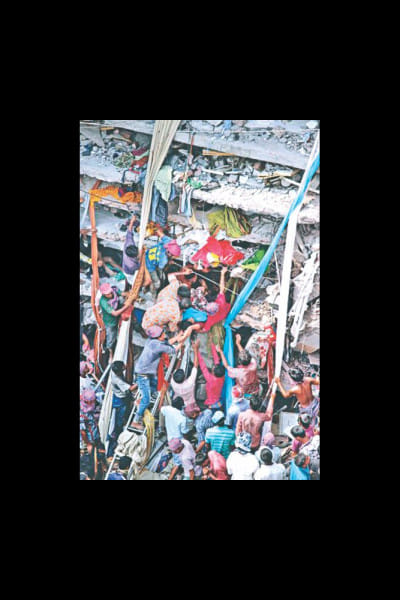
Shariful Islam Joy, another scout who had worked as a volunteer, narrates a different kind of suffering. During the rescue operation, scouts like him had to carry air fresheners with them to get rid of the smell of the rotten flesh. While this was a strategy used to run the rescue operations back then, today, the sweet smell of air fresheners still reminds Shariful of the dead bodies.
Shariful's friend Shopon Hossain, who was also a part of the rescue team , shows a far worse symptom. He could not sleep underneath a ceiling made of concrete for a long time. "I could not sleep in my apartment. I would see my own room collapsing on me. My parents noticed this fear and locked me inside my room hoping that I would be able to fight the fear that way but it did not work. Eventually, my parents rented a room with tin roof nearby and I stayed there for a few months," narrates Shopon.
Fahmida Zaman, a pyscho-social counsellor dealt with a number of rescuers who had been suffering from PTSD for a long time. "People who suffer from PTSD are stuck within a specific period of time. They might remain stuck for days, months or even years. They keep returning to that terrifying moment over and over again and this is why they can't forget that incident easily," she says.
Patients like these, she says, need to be able to talk to people they are close to or people they trust and get counselled regularly.
For many rescuers, it is difficult if not impossible to get rid of those tragic memories —five years later and after going through countless counselling sessions, many are still stuck in those 21 days of tragedy. As PTSD and other mental health issues are hardly acknowledged and treated in Bangladesh, ensuring rehabilitation for these unsung heroes still remain a daunting challenge.
Mohammad Tajul Islam is a freelance journalist.





Comments